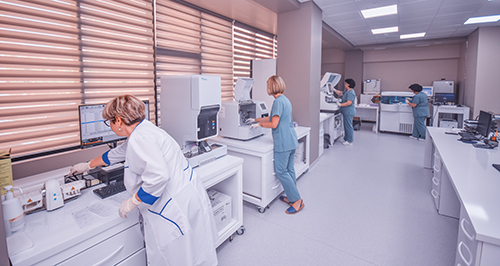How to Monitor Your Health with Laboratory Tests
2025-07-04
Taking control of your health begins with having access to accurate and timely information. One of the most effective and accessible tools for understanding what’s happening inside your body is laboratory testing. Whether or not you have symptoms, lab tests help reveal hidden imbalances, enable early intervention, and support the prevention of serious diseases.
Why Regular Lab Testing Is Essential
Modern medicine increasingly emphasizes prevention. Laboratory monitoring can help you:
- Detect infections, anemia, or chronic inflammation
- Evaluate liver, kidney, and thyroid function
- Diagnose hormonal imbalances or vitamin deficiencies
- Identify risk factors for diabetes, cardiovascular disease, and cancer
- Monitor chronic conditions or treatment effectiveness
Core Types of Lab Tests
The most commonly recommended tests include:
Complete Blood Count (CBC)
Used to identify anemia, infections, or immune system activity. It’s quick, inexpensive, and ideal for general screening.
Biochemistry Panel
Assesses blood sugar, liver enzymes, kidney function, and cholesterol levels. These parameters offer a snapshot of internal organ health.
Urinalysis
Essential for detecting urinary tract infections, kidney issues, or metabolic disorders.
Hormonal Tests
Evaluate the endocrine and reproductive systems. Recommended for menstrual irregularities, infertility, or emotional and metabolic symptoms.
Vitamin and Mineral Analysis
Focuses on essential nutrients like Vitamin D, B12, iron, and folic acid. Deficiencies can affect immunity, energy levels, mood, and hair health.
How to Prepare for Lab Tests
Proper preparation is key to accurate results:
- Most blood tests require fasting for 8–12 hours
- Collect urine in the morning using a sterile container
- Hormonal tests may need to be scheduled according to the menstrual cycle
- Always inform your doctor about medications or supplements you’re taking
Recommended Tests by Age
Health needs evolve with age. Below are general age-based recommendations.
Ages 20–40
People in this age range often feel healthy, but prevention is crucial:
- CBC
- Blood glucose and lipid profile
- Thyroid hormones (TSH, T3, T4)
- Vitamin D, B12, iron
- Reproductive hormones
Frequency: Once per year
Ages 40–60
This stage brings higher risks for chronic conditions:
- Glucose + HbA1c
- Liver and kidney panels
- PSA (prostate-specific antigen) for men
- Onco-markers as needed
Frequency: Annually or as advised by a physician
Age 60+
Comprehensive monitoring is vital as organ resilience declines:
- Extended biochemistry
- Calcium and magnesium levels
- Hormonal and coagulation screening as necessary
Frequency: Every 6 months or per physician's guidance
Gender-Specific Considerations for Women
Women’s health needs evolve with hormonal changes:
- During pregnancy or planning: Iron, folic acid, B12, reproductive hormones
- Menstrual irregularities: LH, FSH, estrogen, progesterone
- Menopause: Bone density markers and hormone balance
- Optional: Onco-markers (e.g., CA-125)
Testing as a Path to Prevention
Lab testing is more than a diagnostic tool - it’s an integral part of a long-term wellness strategy. Whether you’re tracking chronic conditions, preventing illness, or optimizing health, regular, well-planned testing gives you insight and control.
Plan your health screenings based on your age, gender, and personal health profile.
At Khozrevanidze Clinic, we offer accurate, rapid, and professional laboratory services with consultation.
Contact: 0422 22 71 71
Address: 81 Giorgi Brtskinvale Street, Batumi